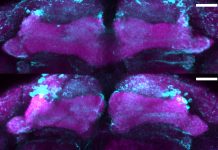
A recent study from the University of Pittsburgh has uncovered a significant link between feeling extremely tired and an increased likelihood of early death in older adults.
The study found that older people who often feel exhausted after doing physical activities are more likely to pass away within the next few years compared to those who experience less fatigue.
Fatigue is a common experience, especially as people age, but this study reveals that severe tiredness could be more than just a sign of aging—it might be a warning of serious health risks.
The researchers focused on understanding how fatigue relates to mortality, making this the first study to directly connect intense physical tiredness with a higher chance of premature death.
To measure fatigue, the researchers used a tool called the Pittsburgh Fatigability Scale. This scale was created by the University of Pittsburgh in 2014 and has since become widely recognized around the world.
It is available in 11 different languages, which shows how useful and applicable it is across different cultures and populations.
The study involved nearly 3,000 participants, all aged 60 or older, who were part of the Long-Life Family Study—a large research project that looks at aging and longevity in families.
These participants were asked to rate how tired they expected to feel after doing various activities, ranging from easy tasks like a 30-minute walk to more challenging ones like heavy gardening or light housework. They rated their expected fatigue on a scale from 0 (not tired at all) to 5 (extremely tired).
After analyzing the data, the researchers found a clear pattern: older adults who scored 25 or more on the Pittsburgh Fatigability Scale were 2.3 times more likely to die within the next 2.7 years compared to those who scored less than 25.
This finding suggests that high levels of fatigue are a strong indicator of mortality risk in older people.
The study’s results emphasize the importance of keeping an eye on fatigue levels in the elderly. Feeling unusually tired could be a sign of underlying health problems that might not be immediately obvious.
By using the Pittsburgh Fatigability Scale, doctors and caregivers can identify older adults who are at higher risk and take steps to improve their health and well-being.
This research also fits into the larger picture of how living a healthy lifestyle can help people live longer, healthier lives.
Previous studies have shown that staying physically active can reduce feelings of fatigue, and this new research reinforces the idea that regular exercise and a balanced diet are key to maintaining good health as we age.
The findings suggest that fatigue in older adults shouldn’t be ignored, as it might indicate more serious health concerns.
Addressing fatigue through lifestyle changes, such as increasing physical activity, eating a nutritious diet, and getting regular health check-ups, could play a crucial role in extending life and improving quality of life for the elderly.
The study, which was published in The Journals of Gerontology: Series A, was led by Nancy W. Glynn and provides valuable insights into the relationship between fatigue, health, and longevity.
It sheds new light on the aging process and highlights the need to pay attention to signs of tiredness in older adults.
For those who care for elderly individuals or who are experiencing high levels of fatigue themselves, this study suggests that monitoring and managing tiredness could be important steps toward better health and a longer life.
By recognizing fatigue as a significant health indicator, both individuals and healthcare providers can take proactive measures to improve overall well-being and reduce the risk of early death.
If you care about nutrition, please read studies that whole grain foods could help increase longevity, and vitamin D supplements strongly reduce cancer death.
For more information about nutrition, please see recent studies about natural coconut sugar that could help reduce blood pressure and artery stiffness, and whey and soy protein may reduce inflammation in older people.
Copyright © 2024 Knowridge Science Report. All rights reserved.



